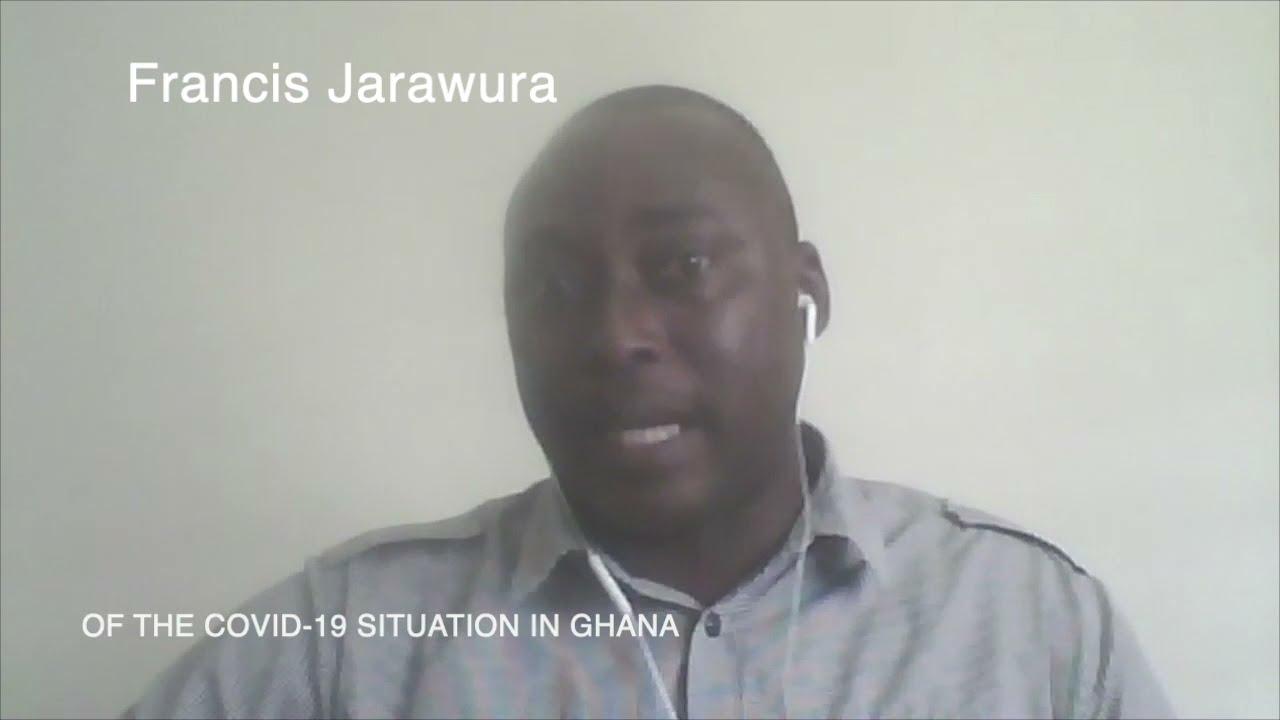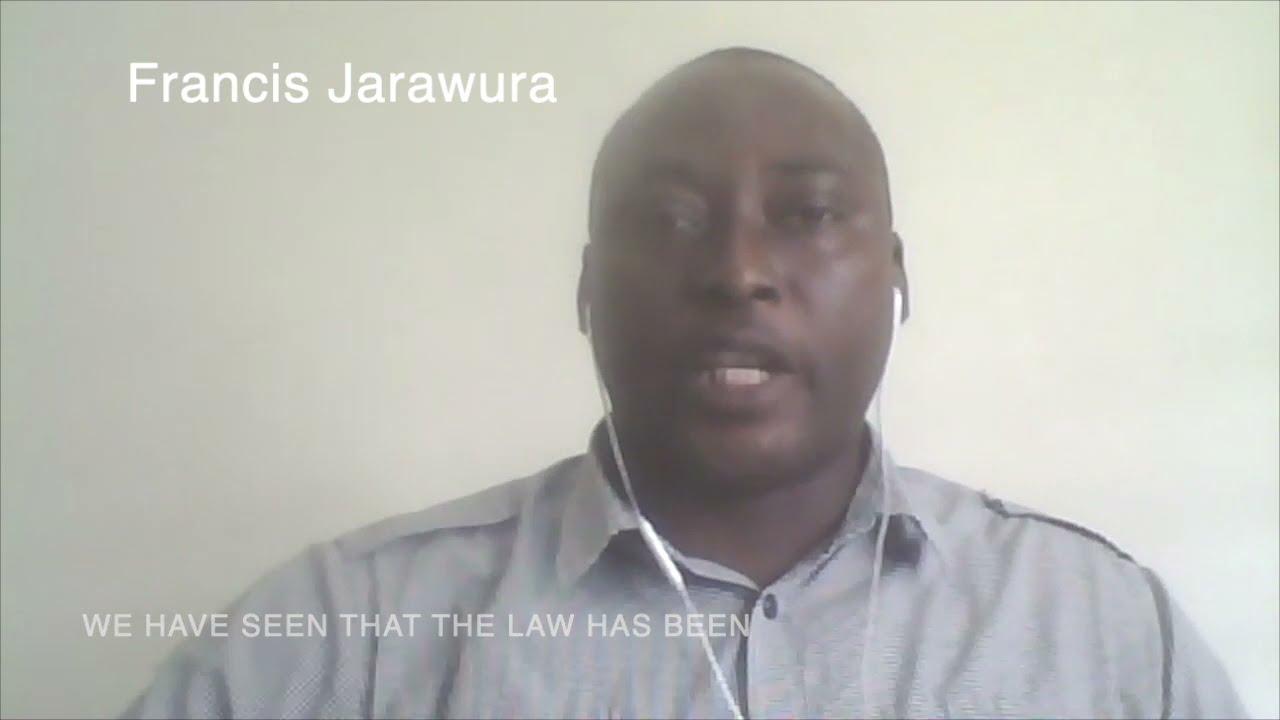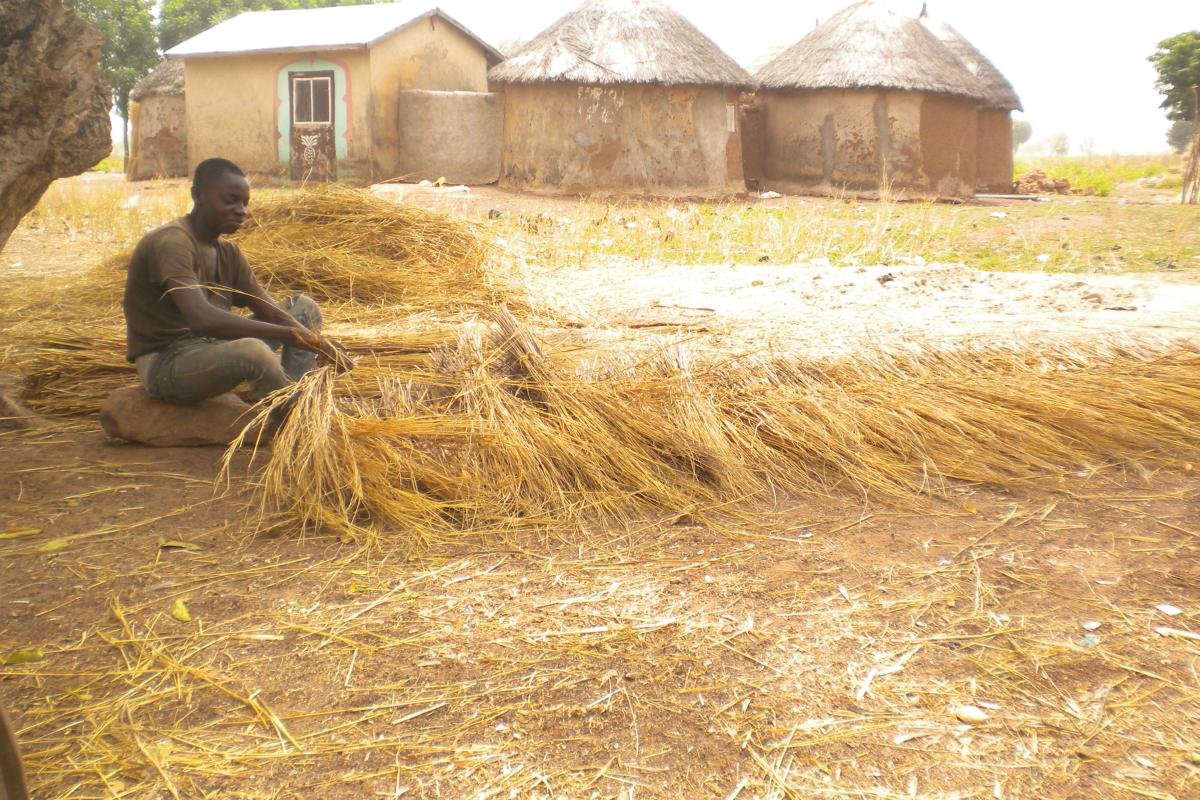
Responding to a crisis: Lessons learned from Northern Ghana
What happens when a crisis hits? This may vary tremendously depending on the crisis at hand; whether it is a slow-onset crisis that creeps closer and gradually affects our lives like the climate crisis, or whether it is a sudden-onset crisis creating immediate and concurrent consequences across the globe like the Covid-19 pandemic. Both demand a will among political leaders to regulate and allocate funds and to make difficult decisions across borders. Yet responses by governments to the pandemic have been strikingly different compared to the climate crisis.
Within a year, more than $13 trillion have been sourced for the pandemic globally. Meanwhile, the 2009 COP16 pledge to reach $100 billion yearly by 2020 has fallen short of its target. For citizens, both the climate crisis and Covid-19 force us to make sacrifices, change our habits and give up some of the parts of our lives that we hold dearest. Yet, for some, the crisis-induced changes also bring benefits. By zooming in and understanding the given context of the pandemic, we see whether certain changes lead to detrimental or beneficial outcomes. Doing so may provide pointers to how people and institutions might respond better to other crises.
For this reason, I inquired into how the pandemic has affected Ghana over this past year – a country that is already touched by the climate crisis with unpredictable variations in weather and changing migration patterns. I asked a friend and colleague, Dr. Francis Jarawura, to tell me about what he has witnessed during the pandemic seen from his home in Northern Ghana. Francis is a Ghanaian social science researcher presently working on the research project ‘Governing Climate Mobility’. He is also a staunch northerner, who dislikes the hustle and bustle of Accra.
Since 2016, Francis has been working as a lecturer at the University for Development Studies on the Wa campus in Ghana’s Upper West region. As a social scientist, he is passionate about the rural poor and devotes much of his time traveling around the north to explore how different communities relate to issues to do with migration, governance and climate change. In our conversations, he therefore naturally related the experiences from the pandemic to the other type of crisis on his radar, namely that of climate change.
Covid-19 in Ghana
Let us first take a look at how the pandemic unfolded in Ghana. On the 12th of March 2020 the first two people tested positive for Covid-19. This was one day after the WHO declared the outbreak a global pandemic. With several countries and territories showing rising numbers of confirmed cases, travel restrictions, quarantine measures and virus screening were being rolled out across the globe and Ghana was no exception. As many other countries, Ghana started responding by restricting people’s movements. From his home in Wa, Francis watched the reactions from the government roll in.
During this time Francis started to notice a disproportionate impact the restrictions were having on people’s lives whereby, similar to the climate crisis, it was the most vulnerable who were hit the hardest.
‘We saw the closing of borders – land and air borders. We also saw a lockdown from March to April 2020’, he explained. Also similar to other countries, the restrictions were partial to begin with, and people who worked in essential services like doctors and nurses were allowed to go to work, and there were fewer restrictions on, for instance, food vendors. During this time Francis started to notice a disproportionate impact the restrictions were having on people’s lives whereby, similar to the climate crisis, it was the most vulnerable who were hit the hardest.
People in the informal sector, who depend on daily wages for survival, could not go to work and lost their daily earnings. Instead, they were forced to rely on support from others or their savings – if they had any. This exposed them to food insecurity and increased their vulnerability in many ways. On 24th February this year Ghana received 600,000 AstraZeneca vaccine doses, reserved for first responders, teachers, elders and healthcare personnel. This was part of the first round of the COVAX scheme for equitable global vaccine distribution. One month later another round followed, sponsored by the mobile phone network MTN, and more have followed since then. However, the expectation among many is that the distribution among the general population will be as skewed and again, as with the effects of the restrictions, the most vulnerable will continue to be affected the most.
Francis described how, between the first round of restrictions a year ago and the recent arrival of the first vaccines, a range of reactions among the Ghanaian population had occurred – all of which provide insights into dynamics that we can learn from when moving forward and looking at other crises, including the climate crisis.
Labour dynamics and return migration
Ghana has a long history of many types of migration and mobility activities used by households to cope with shifting environmental, economic and political conditions, and more recently also shifting climatic conditions. Over the years Francis has witnessed people leaving, and farmers have fewer hands to tackle the climate change-induced variation in weather events that has shortened the time window for harvesting and makes it hard to predict when to start sowing. Around Wa especially, this has made farming practices increasingly challenging and left countless families prone to food insecurity.
What is interesting about this return migration to Northern Ghana, is that some of the migrants have not returned home for a long time – we may describe them as people who were previously trapped.
Given the acuteness of these challenges, farmers noticed with joy how the pandemic and subsequent restrictions caused people who had left to return. In fact, return migration became a hallmark of the pandemic, in spite of the extensive restrictions on mobility. The most extensive lockdown restrictions were rolled out in the country’s two major cities in the south, Accra and Kumasi. So, having felt the loss of jobs and not knowing how long the lockdown would last, many migrants in these cities decided to return home to the rural areas.
These return migrants provided large amounts of labour for the fragile agrarian economy back home. When Francis spoke to community leaders and farmers, they expressed how happy they were, particularly that young girls had returned home and could assist in sowing and harvesting. With the extra hands, Francis observed how farmers were now able to complete their harvesting within the short span that the volatile weather allowed for. This led to a boost in productivity and reduction of harvest losses for communities dependent on manpower and low-level technology for their agricultural activities.
‘What is interesting about this return migration to Northern Ghana’, Francis explained, ‘is that some of the migrants have not returned home for a long time – we may describe them as people who were previously trapped’. Trapped migrants are often described as people who would like to return home but are unable to do so because they have not achieved the life and wealth that they and their families aspired to prior to migrating. Here the pandemic created a window of opportunity, in which it was acceptable to leave the urban labour market and be welcomed back home – even if they would be seen as a failed investment by the family and community.
After explaining these positive impacts, Francis went on to explain that there is more to the dynamics of return migrants than added farmhands and the window of opportunity for trapped migrants. Francis had observed how some of the return migrants had difficulty reintegrating back home. Unlike migrants that were seasonal and others who had lived for a shorter time in urban destinations, these return migrants had been gone for so long that they found it difficult to re-enter the agrarian economy.
‘Some had acquired skills from the city like tailoring, masonry and welding, that could not be used in the rural areas because there was low or no demand for them’ Francis explained, and continued: ‘…beyond that, setting up a business in a small community can be challenging. The high solidarity can make it difficult to charge your uncle for services’. So, instead of struggling to find a new way of living back home, many of the return migrants went back to the city as soon as lockdown was lifted, even though working conditions in the urban areas took several months to pick up again.
‘So what we have seen is a combination of both negative and positive effects’, Francis said, emphasising however that, ‘the negative effects are definitely much bigger’. Migration is often associated with projections of climate change, but inasmuch as it can be perceived as a new challenge, it is also undeniable that mobility has functioned as an essential way of navigating challenging livelihoods across the world for centuries. Yet, mobility sparked by both the climate crisis and the pandemic highlight that we need to understand much more about how different types of crisis affect mobility patterns.
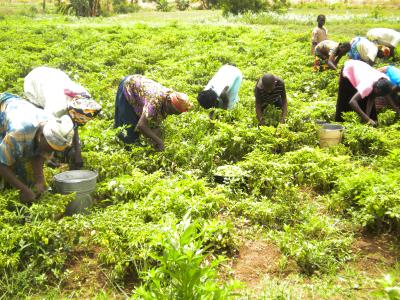
Remittances and local economies
Other dynamics that have been highlighted by the current crisis become apparent when looking at the financial side of the migration pattern. The Bank of Ghana noted that trade reduced tremendously in the first and second quarters of 2020, corresponding with the time of the lockdown when people left the cities. Simultaneously, remittances to people in Ghana from relatives abroad increased for the first quarter of 2020 compared with the first quarter of 2019, despite Covid-19 with all its ramifications hitting hard across Europe and North America at this exact time.
Remittances are essential for many local economies and households – Northern Ghana is no exception. These changing numbers provide an interesting insight into the moral economy of migrants as well as the dependency of their networks on remittances, Francis explained. There is another reality behind these numbers that complicates the remittance dynamics. Francis went on to explain that: ‘Many remittance-dependent households in Northern Ghana have in fact been in dire straits this past year, since the migrants that they depended upon in Kumasi and Accra had either lost their jobs and returned home, or stayed in Accra or Kumasi unable to send money home’.
So, when looking at money transfers internally in the country, the story looks far from the rosy picture one gets from looking at the increase in international remittances. According to Francis, it also tells us that remittance-dependent households have been very vulnerable during the pandemic. This aspect, that existing inequalities are exacerbated, is one that the pandemic shares with the climate crisis. Here, it is a well-established finding that even though a crisis may affect all, it is those already vulnerable that are often hit hardest.
Mobility dynamics are highly flexible, as Ghana’s Covid-19-related return migration shows. The long history and widespread types of patterns, not only in Ghana, underline the importance of understanding how mobility dynamics pan out in the context of crisis. Whether a crisis is slow-onset or sudden, people’s decisions to move or to stay can be essential for authorities of various kinds to understand how best to roll out regulations and support mechanisms. This brings us to another issue that Francis emphasised in our talk, namely that of how the authorities in Ghana responded to the pandemic and how people navigated guidelines and restrictions.
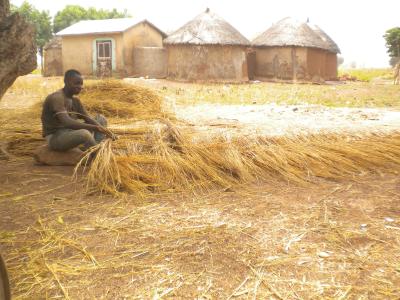
Restrictions, misinformation and muddled authority
With the many different forms of institutions, formal and informal, traditional and religious that exist in Ghana, people are influenced by various points of authority. Over the past year Francis has observed how different institutions across the country offered contradictory guidelines, which have led people to respond in ways that have compromised the containment of the virus:
‘The greatest challenge came from religious bodies. Some of these leaders claimed that God was in control and that they could pray for people not to contract the virus. We have seen pastors being arrested by the security forces, taken to court, and some have been jailed. Other churches and mosques have not been apprehended by the police despite having continued to be open during the time that they were supposed to be closed down’. Given the high number of mosques and churches in the communities, this has been difficult for people to navigate as well as for the police to regulate.
It takes a lot for someone to start disbelieving his herbalist who has been able to help in the past
From his home in Northern Ghana, Francis has again and again seen how misinformation was a real problem over the course of this past year. As a university lecturer making frequent visits to the capital, Francis has had access to multiple types of information, and has himself experienced the challenge of separating out reliable sources of information and healthy critical questioning from pseudo-science. Contrastingly, many of Francis’ neighbours travel little, speak only the local language and their single access point to reliable information is the radio. So for them, the challenge of weaving out reliable information has been different, though no less challenging.
Additionally, false information spread through WhatsApp and Facebook groups. Conspiracy theories flourished, some of which claimed that it was a European disease or that it was a disease that only affected rich people. In addition, there were herbalists who claimed to be able to heal people from Covid-19. Similar to the religious leaders, only some herbalists were jailed, while others continued their practices and went on to produce oral concoctions claimed to prevent infection.
To people who are used to a simpler landscape of authorities where medical health clinics are the only state facility to be considered with regard to one’s health, this confusion about who to listen to might be hard to relate to. Francis addressed such scepticism by saying, ‘It takes a lot for someone to start disbelieving his herbalist who has been able to help in the past’, especially when one lives in an area where the presence of the alternative – skilled doctors and nurses – is minimal. Similarly, the conviction that God takes care of his children in times of need is widely trusted among Ghanaians of various religious backgrounds, be the risk at hand a pandemic or be it a climate crisis.
You could see many people constantly asking questions and listening to the radio to hear what comes in the local dialect
Given the various claims and conspiracy theories coming from trusted authorities, many struggled to make sense of what guidelines were reliable. Importantly, this affected perceptions of the state response and whether or not it was acknowledged and, ultimately, followed. ‘You could see many people constantly asking questions and listening to the radio to hear what comes in the local dialect’, Francis explained.
Towards the end of 2020 Francis started to notice that fewer and fewer people wore masks in Wa, and practically none in the rural communities he visited across Northern Ghana. He made similar observations on his occasional visits to Kumasi or Accra. In fact, it seemed to him that masks were only widely used when the police and army were around. Similarly, social distancing was generally not adhered to, and mass gatherings seemed to be regulated very differently depending on who the organising individual or institution was.
In certain instances politicians and parliamentary candidates held mass gatherings of hundreds of people without masks – instances that were not punished. ‘When people you know and respect go about their business as usual, and nothing happens to them, people see their heroes evading punishment’, Francis explained and continued, ‘…that then reflects into people’s own lives, and they stop following the guidelines themselves’.
However, coming into January 2021, Ghana’s infection rates went up again and the police started to arrest whoever failed to wear a mask with much less bias than previously. This step by the state to support the police in enforcing regulations brought the spread under control within a month. However, misinformation about the virus continued to challenge a streamlined approach to stop the spread. Even when the first round of vaccines arrived in March, some were unaware that they could request it despite qualifying for it, while others were scared the vaccine would make them ill.
Francis continued to see conspiracy theories circulating extensively, some even said the vaccine would make you gay’, he explained; a statement that should not be taken lightly in a country where homosexuality is criminalised. The power of misinformation has created widespread fear and apprehension against the vaccine – some clinics are essentially begging people to come and get vaccinated.
Nevertheless, in Northern Ghana, the infection rate has been very low throughout the pandemic. Despite the rest of the world continuing to be afflicted by the pandemic, Francis sees more and more of the people around him talk about the pandemic as something that has passed and are essentially going about business as usual. The invisibility factor of a virus shares certain similarities with the climate crisis as one gets the sense that the urgency of the matter is easy to dismiss when it is not consistently present as a visible threat.
Conclusion
Across the African continent we have witnessed quite dramatic changes that trigger political, economic and social challenges and tensions in many countries. In some places, urban-to-rural migration has brought much needed labour, while for others, it has undermined urban and rural cash flows and caused food prices to rise; household support networks and remittances have grown for some and become uncertain for others; rumours, falsehoods and disinformation have been prevalent and the limited faith in government has shrunk among some population groups and risen in others.
Before the pandemic some of these dynamics existed as subtle undercurrents. And yet, they were often difficult to capture – clues might only be visible during local or regional tension. Nevertheless, they hold a key to understanding response dynamics of other emergencies including the climate crisis. As a wider and fully encompassing point of tension, the pandemic is therefore serving to expose and highlight the dynamics between different institutions, the significance of forms of mobility, and the need for authorities and communities to seek ways of responding to crises in general – whether sudden or gradual, short or long-term.
In Ghana, the pandemic has revealed how different authorities and governance institutions have implemented and regulated measures in different ways. Given the institutional pluralism in Ghana, where chiefs, community leaders and religious leaders influence populations on a par with local government actors, the way in which efforts from the national government have been coordinated and regulated has revealed the system’s bias – it has put a spotlight on institutional power dynamics in ways that are much less clear, under ‘normal’ circumstances.
The slow-onset climate crisis may stir similar power dynamics, which is why the immediacy of the pandemic has shed a highly relevant light on the subtleties of the power dynamics of authorities. It has provided an opportunity to explore the role of government in local politics; the status of the church or the mosque as an authority; differences in mobility patterns; and whether population groups respond to the government’s initiatives for tackling an invisible threat with revolt or compliance.
Additionally, the pandemic has also awakened a consciousness of certain issues among people as well as institutions – a change that Francis is convinced will be longlasting: ‘If you look at ordinary people, some houses have prevented others from using their toilets. I have seen in my neighbourhood, three houses have started to construct their own toilets because of it.
The situation has also revealed how vulnerable migrants can be when it comes to a crisis of this nature. Consequently, some NGOs have started to help return migrants who remain in the north. Also, when it comes to construction workers, government will have to attend to the nature of contracts. Most unformalised contract workers have no insurance, no retirement benefits etc. So, when their work is stopped by a pandemic or a similar crisis, it means that there is no formal support system and all they have is the little they may have saved’. These are examples where the pandemic has put a spotlight on an issue, and responding to it may ultimately create preparedness and resilience towards other crises, including those caused by climate change.
Dr. Francis Jarawura is a lecturer at the University of Business and Integrated Development Studies and the University for Development Studies in Wa, Northern Ghana. Here he combines teaching and research on issues related to rural development, climate change, migration and socio-economic transformations in Ghana. In 2008, he completed a MPhil in Human Geography at University of Oslo, and in 2013, he received a PhD in Migration Studies from the University of Ghana.


